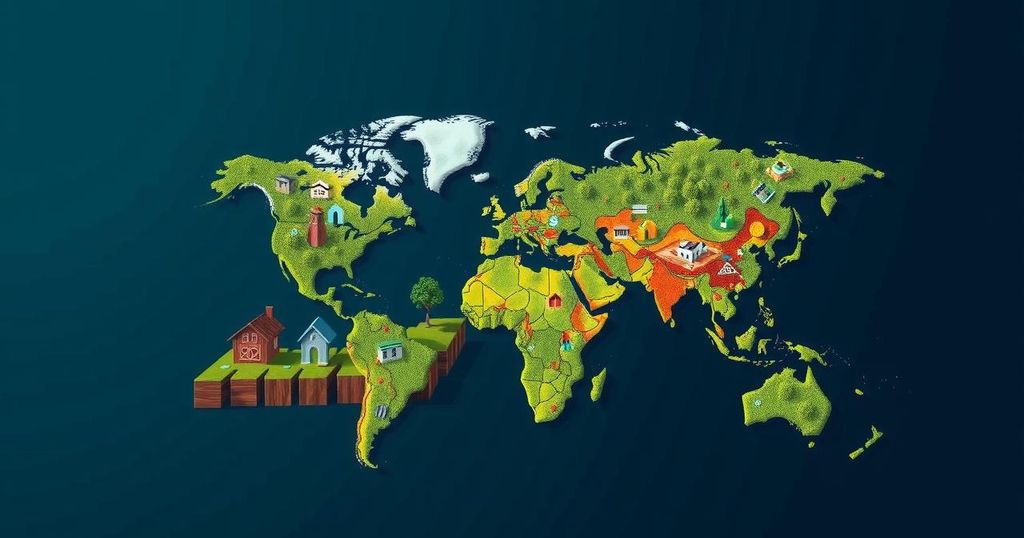Accountability in Climate Finance: Who Should Bear the Cost?

Government officials at COP29 are striving to agree on a climate financial package as the impact of climate change intensifies for vulnerable communities. A proposed tax on major oil companies could significantly boost funding for loss and damage, which could yield approximately $900 billion by 2030. Activists advocate for accountability from polluters to address the climate crisis effectively.
At the recent UN climate conference in Baku (COP29), discussions centered on establishing a climate financial solution to alleviate the burdens faced by vulnerable communities impacted by climate change. A considerable analysis by Greenpeace International and Stamp Out Poverty highlights that imposing a modest tax on seven leading oil and gas companies could potentially increase the UN Fund for Responding to Loss and Damage by over 2000%.
This tax, applied to the 2023 profits of companies like ExxonMobil, Shell, and TotalEnergies, could finance recovery efforts for significant weather disasters, including Hurricane Beryl and Typhoon Carina. The implementation of a Climate Damages Tax (CDT) across high-income OECD nations could generate about $900 billion by 2030, enabling support for communities grappling with climate consequences.
It is imperative that the financial burden of climate crisis recovery shifts from its victims to the entities that contribute to these challenges. The call for a climate damages tax is underscored by calls to action from global activists stressing accountability for those causing environmental harm. As highlighted by Abdoulaye Diallo of Greenpeace, it is crucial for governments to push these fossil fuel corporations to cease fossil fuel extraction and take responsibility for their environmental impact.
The ongoing climate crisis is disproportionately affecting vulnerable populations worldwide, leading to escalating calls for accountability and compensation from those responsible for these changes. As climate change-related disasters become more frequent and severe, the conversation around funding mechanisms to address loss and damage has gained urgency, especially within global platforms such as COP29. Environmental organizations have proposed innovative taxation strategies targeting the oil and gas sector as a means of generating essential financial resources for recovery efforts; thus, framing the discussion within the broader context of climate justice and ethical responsibility.
In summary, the urgent need for financing climate interventions stems from the detrimental effects of climate change on vulnerable communities. The implementation of a Climate Damages Tax targeting large oil and gas companies emerges as a viable solution to raise substantial funds necessary for recovery initiatives. Ultimately, transforming the narrative of accountability from victims to perpetrators of climate crises is vital. Through concerted advocacy and innovative financial strategies, stakeholders can pave the way toward equitable climate action.
Original Source: www.ipsnews.net






